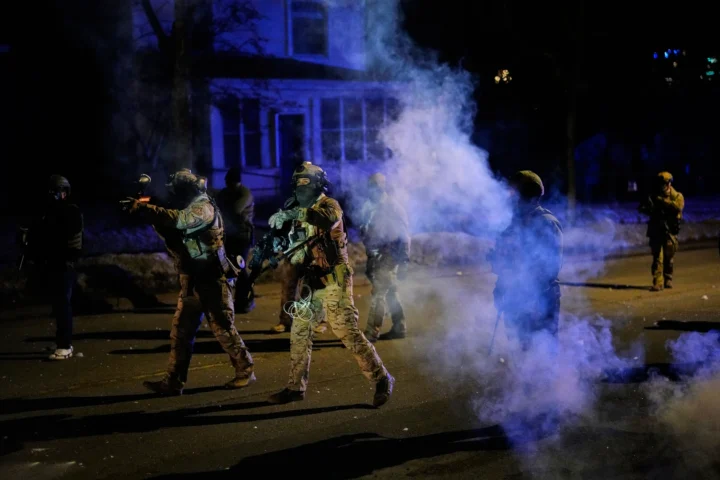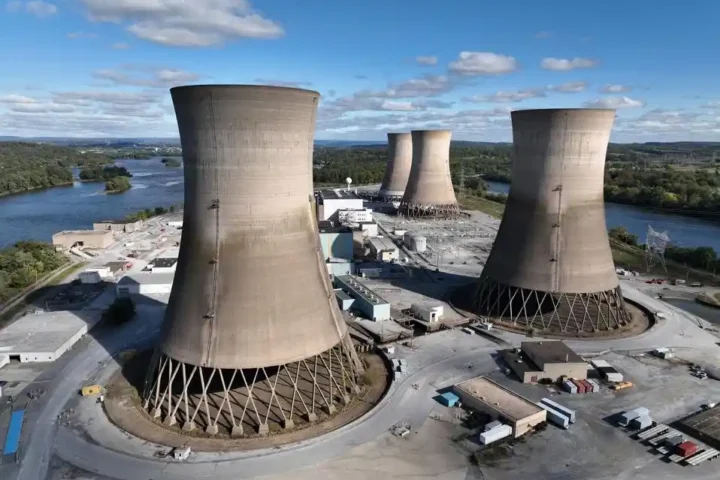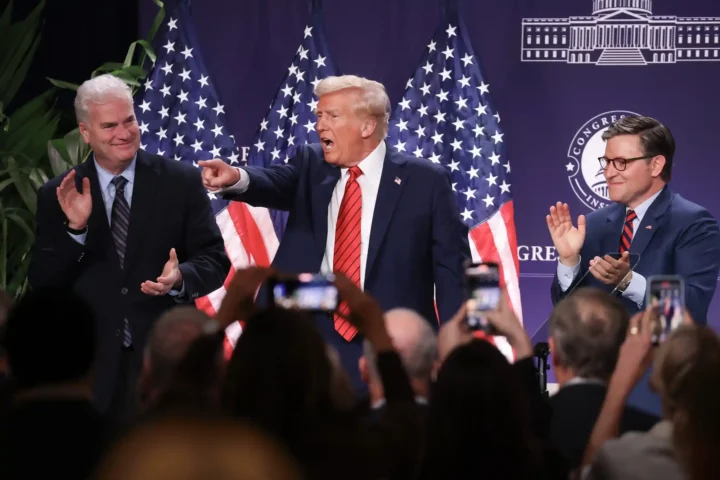Summary
The U.S. Supreme Court’s recent rulings highlight a strategic shift in climate litigation: from constitutional claims against government to state-based lawsuits holding fossil fuel companies accountable for deliberate deception. Local governments and states increasingly pursue corporate responsibility, exposing decades of misinformation by oil giants about climate risks. Cases like Honolulu’s suit and Montana’s landmark decision illustrate judicial willingness to enforce corporate accountability through state law. Despite federal obstacles, these lawsuits spotlight corporate misconduct, enhance public awareness, and catalyze broader regulatory change. Ultimately, this evolving legal landscape positions courts as essential players in ensuring accountability for the climate crisis and its impacts.
In March 2025, the United States Supreme Court closed the chapter on Juliana v. United States, ending a groundbreaking climate lawsuit that spanned a decade and saw young plaintiffs seeking accountability from the federal government for its role in perpetuating climate change. Yet, barely two months earlier, the same court had permitted a parallel case filed by the city and county of Honolulu to proceed against major oil and gas corporations, signaling an important shift in judicial sentiment on climate accountability.
At first glance, these contrasting rulings may seem contradictory. However, they underscore a crucial evolution in climate litigation strategies: shifting from targeting governmental inaction on constitutional grounds to exposing corporate malfeasance through state and common law claims.
Historically, legal battles around climate change have navigated a complex web of constitutional rights, federal statutes, and common law principles. The landmark 2007 Supreme Court decision in Massachusetts v. Environmental Protection Agency firmly established carbon dioxide as a “pollutant” under the Clean Air Act. This prompted the EPA’s pivotal 2009 “endangerment finding,” which acknowledged that carbon dioxide emissions threaten public health and the environment, paving the way for federal regulatory action. However, subsequent regulations aimed at curbing emissions from older power plants faltered under legal challenges, highlighting the contentious interplay between statutory authority and judicial interpretation.
Given this fraught federal landscape, climate activists and local governments have increasingly turned to state courts, employing innovative legal arguments that transcend federal impasses. Central among these is the strategy of leveraging state consumer protection laws and tort claims rooted in common-law doctrines such as negligence and public nuisance. This strategy reframes the climate issue from regulatory compliance to accountability for intentional misinformation and environmental damages caused by fossil fuel companies.
Cases like Connecticut v. American Electric Power (2004) initially tested the waters for common-law claims, aiming to declare greenhouse gas emissions a public nuisance requiring mitigation. Although the Supreme Court ruled in 2011 that federal legislation preempted such common-law claims, the idea persisted in other forms. Recent litigation has moved beyond direct emissions reduction demands and now focuses heavily on corporate deception.
These lawsuits argue that fossil fuel companies knowingly concealed the severe dangers of climate change from the public, undermining informed public discourse and delaying critical policy actions. The evidence for such allegations is strikingly robust. Internal memos from industry giants like Exxon dating back to the 1970s explicitly acknowledged the “great and urgent” threat posed by fossil-fuel-driven climate change. Despite clear internal awareness, these companies funded misleading campaigns designed to cast doubt on climate science—tactics reminiscent of historical tobacco industry strategies. Documents cited in lawsuits filed by states like Maine highlight deliberate and systematic campaigns of misinformation, such as ads funded by the Information Council for the Environment that mocked climate concerns as baseless hysteria.
Courts have increasingly recognized the validity of these claims. The city of Honolulu’s ongoing lawsuit against fossil fuel companies, now allowed by the Supreme Court, exemplifies this judicial openness to scrutinizing corporate accountability under state laws. Honolulu’s complaint, mirroring others nationwide, seeks restitution for tangible climate-related damages—ranging from infrastructure repairs necessitated by extreme weather events to protective measures like cooling centers—costs currently shouldered by taxpayers rather than the corporations responsible for the lion’s share of historical emissions.
Meanwhile, judicial victories at the state level, such as Montana’s groundbreaking 2024 decision, signal a growing judicial acknowledgment of environmental rights. Montana’s Supreme Court asserted a constitutionally guaranteed right to “a clean and healthful environment,” explicitly including a stable climate system. By overturning a state law preventing officials from considering climate impacts in project approvals, Montana established an important precedent, empowering state officials and citizens alike to hold companies accountable through environmental oversight and regulatory scrutiny.
Yet, despite these incremental victories, the journey toward judicially mandated climate accountability remains arduous. The recent dismissal of Juliana underscores the persistent judicial hesitance to tackle systemic government accountability via constitutional claims, which courts frequently categorize as inherently political issues beyond judicial purview. This distinction is vital: Courts seem more comfortable holding corporations financially responsible under state and consumer protection laws than directing national climate policies.
Consequently, the future of climate litigation appears firmly rooted in the strategic refinement of state-level legal tools and doctrines. Plaintiffs increasingly recognize that compelling corporate transparency and responsibility may offer more tangible outcomes than broader constitutional claims against governments, which often face insurmountable barriers in the courts.
Moreover, this wave of litigation serves a dual purpose: Beyond seeking redress, these cases amplify public awareness of historical corporate misdeeds, enhancing civic pressure for regulatory action and corporate reform. Shareholders are becoming increasingly vocal, demanding transparency and sustainable practices from within corporations, driven partly by the revelations unearthed through litigation.
Critically, as courts increasingly acknowledge credible claims against fossil fuel companies for deceit and negligence, these lawsuits reinforce a broader narrative that climate accountability is not merely a moral or political issue—it is fundamentally about legal responsibility for deliberate actions that have demonstrable, lasting consequences.
In sum, while the Supreme Court’s dismissal of Juliana may superficially appear a setback for climate accountability, the broader legal landscape reveals otherwise. The ongoing Honolulu case, coupled with the precedent set by states like Montana, reflects a dynamic and potent evolution in climate litigation. By strategically leveraging state laws and consumer protection frameworks to expose corporate deception, climate advocates have uncovered a legally actionable path forward.
This approach, though incremental, is transforming the climate accountability narrative. It positions the judiciary as a crucial arbiter capable of compelling corporate transparency and financial responsibility, thereby complementing and potentially catalyzing necessary regulatory and legislative actions. Ultimately, these lawsuits serve as a powerful reminder to corporations, governments, and citizens alike that accountability for climate change is not only a scientific or ethical imperative but also a legal one.
References and Further Reading
- Juliana v. United States – Climate Change Litigation Databases. (2025). Climate Case Chart. https://climatecasechart.com/case/juliana-v-united-states/
- City & County of Honolulu v. Sunoco LP – Climate Change Litigation. (2025). Climate Case Chart. https://climatecasechart.com/case/city-county-of-honolulu-v-sunoco-lp/
- Shell’s ongoing legal battle over climate accountability reached a pivotal moment on 12 November 2024. (2024). Climate Hughes. https://climatehughes.org/blog-corporate-climate-unaccountability-landmark-shell-ruling/
- Massachusetts v. Environmental Protection Agency – Ballotpedia. (2007). Ballotpedia. https://ballotpedia.org/Massachusetts_v._Environmental_Protection_Agency
- Held v. State – Climate Change Litigation Databases. (2025). Climate Case Chart. https://climatecasechart.com/case/11091/
- Exxon Knew about Climate Change Almost 40 Years Ago. (2015). Scientific American. https://www.scientificamerican.com/article/exxon-knew-about-climate-change-almost-40-years-ago/
- Information Council for the Environment – Wikipedia. (2025). Wikipedia. https://en.wikipedia.org/wiki/Information_Council_for_the_Environment
- Vermont v. Exxon Mobil Corp. – Climate Change Litigation Databases. (2025). Climate Case Chart. https://climatecasechart.com/case/vermont-v-exxon-mobil-corp/
- Climate Change Litigation: The Emergence of Public Nuisance. (2018). CAI Law. https://www.cailaw.org/media/files/IEL/ConferenceMaterial/2018/treistman-hester-renfroe-paper.pdf
- Ten Climate Court Wins In 2024. (2024). Climate in the Courts. https://www.climateinthecourts.com/ten-climate-court-wins-in-2024/
- Shareholder Activism and Firms’ Voluntary Disclosure of Climate Change Risks. (2020). Harvard Business School. https://www.hbs.edu/ris/download.aspx?name=20-049.pdf
- Corporate climate change litigation: Increasing heat on boardrooms? (2022). Vinod Kothari Consultants. https://vinodkothari.com/2022/09/climate-change-litigation-vis-a-vis-directors-liability/
- Montana Supreme Court sides with youth plaintiffs in landmark climate lawsuit. (2024). Montana Free Press. https://montanafreepress.org/2024/12/18/montana-supreme-court-sides-with-youth-plaintiffs-in-landmark-climate-lawsuit/
- Juliana v. United States – Harvard Law Review. (2020). Harvard Law Review. https://harvardlawreview.org/print/vol-134/juliana-v-united-states/
- Information Council for the Environment (ICE) – DeSmog. (2015). DeSmog. https://www.desmog.com/information-council-environment/
- Juliana v. United States – CORE. (2019). CORE. https://core.ac.uk/download/pdf/232677712.pdf
- The Climate Deception Dossiers (2015), Union of Concerned Scientists. (2015). Union of Concerned Scientists (archived at DeSmog). https://archive.is/wC27p











